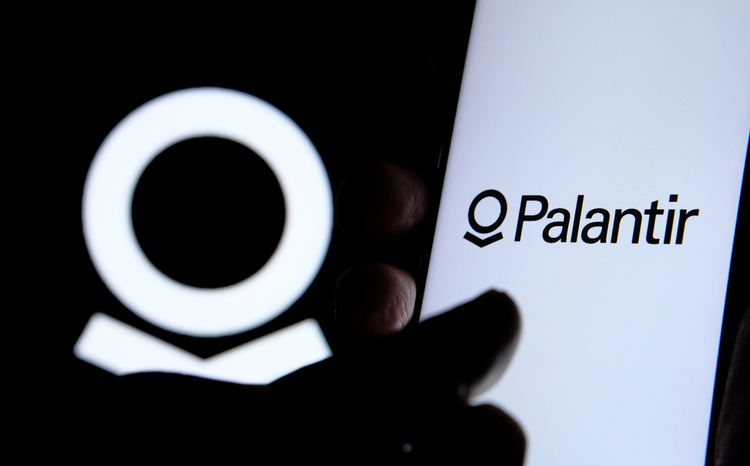Palantir awarded £23m deal to continue work on NHS Covid-19 Data Store
- 21 December 2020

Palantir has been awarded a £23million contract to continue its work on the NHS Covid-19 Data Store.
The two-year contract was first reported today by openDemocracy and Foxglove Legal who have campaigned for transparency surrounding deals between the NHS and big tech firms.
The contract was awarded under the Crown Commercial Services G-Cloud 11 Framework, which does not require a tender to be published.
It commenced on 12 December and confirms the continued use of Palantir’s Foundry data management platform in the NHS Covid-19 Data Store until December 2022. The Data Store was established in March to manage Covid-19 data to inform the government’s response to the virus.
Parts of the contract have been redacted, including sections titled “limit of parties’ liability” and “data integration and analytics capability for self-service” which specifically covers how many “authorised users” are permitted to create and modify tools designed using the data.
A second section about “authorised user groups” was also redacted.
openDemocracy and Foxglove claim the contract was “secretly” signed “in apparent violation of their [the government’s] prior promise to conduct future contracts between the NHS and big tech via a full and open public tender”.
The publication and law firm had threatened a judicial review over the anticipated deal with Palantir after it was revealed NHS England and Improvement were seeking a supplier to continue work on the NHS Covid-19 Data Store, in a deal potentially worth tens of millions.
The contract will likely outlast the anticipated end of the pandemic and raises questions about the use of Covid-19 emergency measures put in place earlier this year, openDeomcracy and Foxglove said in a joint statement.
Mary Fitzgerald, editor-in-chief of OpenDemocracy, said “This is no way to build trust or convince anyone that you have the public interest at heart.”
“It begs the question: what have they got to hide? Why are they so afraid of public scrutiny or debate over this?’
“But when it comes to the future of the NHS, it shouldn’t take investigative journalists to figure this stuff out. The government should just tell people about its plans for the NHS, explain the potential tech partnerships on the table – and seek the public’s permission before it’s too late.”
Cori Crider, director of Foxglove, added: “We’re deeply troubled by the government’s lack of candour around these data deals. Despite promising a fair process that let the public see what was at stake, they bounced us – shoving through another secret contract for two years.
“These deals aren’t about the pandemic anymore. They’re about the future of our NHS. People don’t want to see the NHS – or their health data – privatised by stealth.
“Any long-term relationship with a tech firm should meet stringent tests of moral probity and value for citizens.
“Refusing to level with the public about these deals will only convince people the government have something to hide.”
The Department of Health and Social Care and Palantir have been contacted for comment.
The Covid-19 Data Store contract
Palantir was contracted in March 2020 by the NHS to help develop the NHS Covid-19 Data Store for a fee of £1. The contract was due to expire in June but was extended for four months at a cost of £1million.
NHS England revealed it was seeking a supplier to continue work on the store at the end of the extended contract, with a supplier expected to be chosen by the end of 2020.
Digital Health News first reported in September that the contract could be worth up to £18m a year over five-years, totalling almost £100m by completion.
Crider had previously told Digital Health News she thought it was unlikely the contract will go to a new supplier as Palantir had built, and is running, the analytical dashboards currently used by the Data Store.
Palantir was among a suite of private tech firms hired in March to help deliver the NHS Covid-19 Data Store and other Covid-19 responses. Google, Amazon, Microsoft and AI firm Faculty all hold contracts to work on the platform.
The government had faced fierce backlash for failing to publish the original contracts, including Palantir’s, and only did so in June just hours before proceedings brought by openDemocracy and Foxglove were due to start.
A privacy notice relating to the NHS Covid-19 Data Store states Palantir, and other tech companies involved, only have access to pseudonymised and anonymous data, but concerns have been raised about how private tech firms could be using NHS data.
A November National Audit Office report on government Covid-19 contracts found a general lack of transparency and adequate documentations around decisions to appoint some suppliers, mostly relating to PPE and testing services.





3 Comments
Agree with Ryan. I worked in the NHS, IT dept & it’s absolutely broken. I showed the website (not quite the right term perhaps) that Palantir has developed for NHS and my best friend who was an NHS SQL contractor in the NHS working on data reporting and he was impressed. Forcing the govt to put all details up for scrutiny and essentially allowing then poorly positioned public (who make decision on emotion/propoganda) to make the decisions is dangerous, best case scenario it adds huge delays and costs. Intelligent software from a competent company like this has been needed for at least 2 decades.
Look, Palantir does not collect data, OpenDemocracy needs to relax
No, but they process it.
They are not the data owner (that’s the patient); they are not the data controller (that’s the NHS England).
Concerns could be allayed if the controls and constraints of Palantir were disclosed. It would also elevate and enable the role of the ‘data owner’/patient.
Comments are closed.